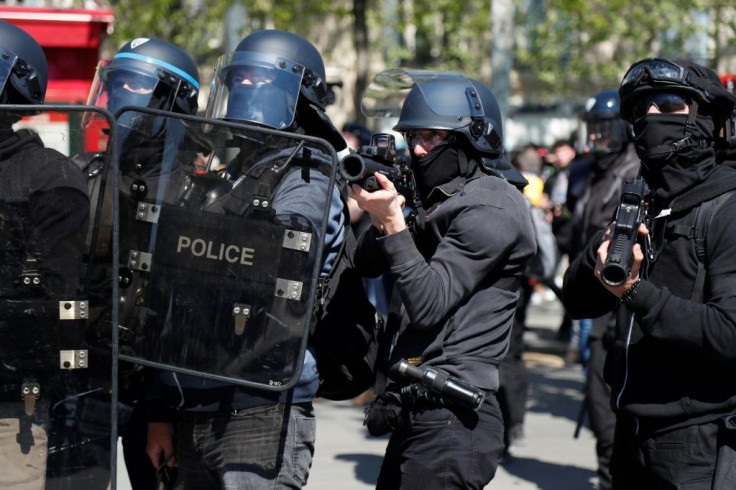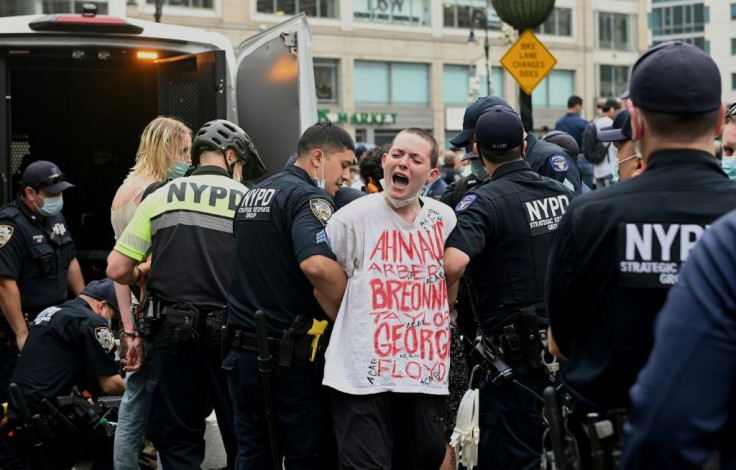Police Defunding: New York, LA Start Reforms Despite 65% Opposing Police Funding Cuts

KEY POINTS
- The fallout from George Floyd's death is now hitting police departments across the country the hardest
- Dismantling or defunding seems to be in the future for a number of police departments
- Two-thirds of Americans, however, don't want to defund the police
The most controversial hot button issue arising from the George Floyd protests against police brutality and racism -- defunding or abolishing U.S. police departments -- is stoking both praise and fear as more cities move in this direction.
A new survey, however, indicates 65% of Americans oppose cutting police force funding. The poll from Yahoo News/YouGov was conducted from May 29 to 30.
On Sunday, the Minneapolis City Council voted 9 to 5 to disband the Minneapolis Police Department (MPD) on account of the death of George Floyd while in custody of its officers. The supermajority vote can't be vetoed by Minneapolis mayor Jacob Frey, who still staunchly opposes abolishing the MPD.
“We’re here because we hear you," said Lisa Bender, council president. "We are here today because George Floyd was killed by the Minneapolis Police. In Minneapolis and in cities across the United States, it is clear that our existing system of policing and public safety is not keeping our communities safe. Our efforts at incremental reform have failed. Period."
The mayors of both Los Angeles and New York City have said they will defund their police departments as part of new efforts to reform police ranks.
Also on Sunday, New York City Mayor Bill de Blasio announced he will shift an unspecified amount of funds away from the New York City Police Department (NYPD) toward youth and social services. NYPD's budget for this year amounts to $6 billion, which is 7% of the city's total budget of $90 billion.
“We’re committed to seeing a shift of funding to youth services, to social services, that will happen literally in the course of the next three weeks, but I’m not going to go into detail because it is subject to negotiation and we want to figure out what makes sense,” said de Blasio, whose wife, Chirlane, is African-American.

A change also being proposed by de Blasio is transferring the enforcement for street vending from the NYPD to a civilian agency. The mayor also plans to appoint community ambassadors to the NYPD to act as liaisons between cops and civilians. These community ambassadors will have the ability to bring the concerns of the community to the highest levels of the NYPD, said de Blasio. He said these people will also have a hand in bringing about needed changes to allow better and fairer policing.
“People did not protest for the sake of protest," said de Blasio in a press conference. "They protest to achieve change, and now we must deliver that change."
Los Angeles will also slash $100 million to $150 million from the budget of the Los Angeles Police Department (LAPD) and redirect these funds to improve relations with the black community. The order to do so was given on June 3 by Mayor Eric Garcetti. At the time, Garcetti said he had asked the city to “identify $250 million in cuts” from all sources. The money will be invested into the black community, communities of color, women and “people who have been left behind."
“While our work for racial justice begins in L.A., it must echo throughout our state and across our nation. I will keep working with leaders in Sacramento and D.C. to advance legislation that protects black lives and communities of color long denied equity in our laws,” tweeted Garcetti on Friday.
While our work for racial justice begins in L.A., it must echo throughout our state and across our nation. I will keep working with leaders in Sacramento and D.C. to advance legislation that protects Black lives and communities of color long denied equity in our laws.
— MayorOfLA (@MayorOfLA) June 6, 2020
Garcetti also announced he will launch a new Civil and Human Rights Department and Civil and Human Rights Commission this summer to “protect anyone who lives, works in or visits L.A. from discrimination or denial of equal treatment in private employment, housing, education or commerce.”
The Yahoo News/YouGov Poll also shows 80% of Americans favor implementing an early warning system to identify problematic police officers. This option is supported by 89% of Democrats, 72% of Republicans, 81% of whites and 88% of blacks.
The poll reveals 67% of Americans want a ban on any type of neck restraint. This combat technique is allowed by many police forces under certain circumstances. It shows 80% Democrats supporting a ban on neck restraints. Only 58% of Republicans agree with the ban.
© Copyright IBTimes 2025. All rights reserved.





















